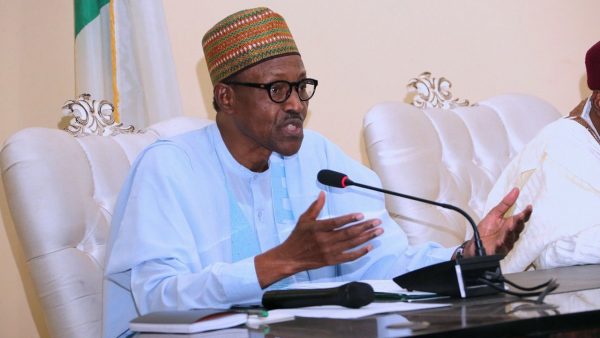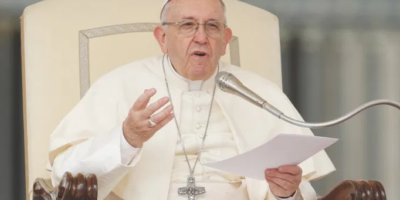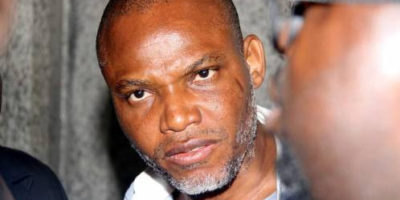In Durban, Buhari Says Nigeria’s Economy Now Restructured From Oil Dependence To Multiple Revenue Sources

- States Africa’s challenges traceable to inability to domesticate production, provide jobs
President Muhammadu Buhari has said his administration has transformed the nation’s economy from being solely dependent on oil revenue to diverse revenue sources in the past years.
He also stressed that the implementation of the free trade zone in Africa would lead to the doubling the continent’s trade in 10 years.
The President who spoke yesterday during the opening of the 2nd Intra-African Trade Fair 2021 holding in Durban, South Africa, emphasised that the Nigerian economy under his administration had witnessed a re-engineering.
This is just as speaking exclusively with Arise News Channel, on the sidelines of the event, the president stated that despite the fall in oil prices as well as challenge of insecurity in parts of the country, his administration had done well, especially in the areas of rail transportation.
Asked what more he could do to support Small and Medium Scale Enterprises (SMEs), Buhari stated that his decision to invest in infrastructural development base was part of the plans to help the country’s businesses grow.
He reiterated that for several years, when Nigeria’s oil and gas production and sales were at their peak nothing much was done, saying despite the many constraints, Nigeria was forging ahead with its development agenda.
The president said:
What we are doing, first is to build infrastructure. I am constrained to go over it several times, that people should check the Central Bank of Nigeria (CBN) and the Nigerian National Petroleum Corporation (NNPC). Between 1999 and 2014, Nigeria was producing an average of 2.1 million barrels per day at the average cost of $100 per barrel.
When we came, the militants unleashed on us, production went down to half a million per day and price went down to $37 from $100. And you know the condition of the north-east, the condition of the south-south, then you will appreciate, with the time and resources available to us, how well our administration has been doing.
On whether he intended extending key infrastructure development to other parts of the region in the spirit of the AfCFTA, he answered:
We should start from home. You used to see the accidents between Lagos and Ibadan alone, not to talk of Kano. Go and see the rail and the road that we have done now and people are moving comfortably,
Earlier, while delivering his speech, he noted that in the past five years, Nigeria has made significant strides towards the diversification of her economy from an oil revenue-dependent country to a nation with diverse revenue sources.
He said:
We were able to achieve this by putting in place fiscal, monetary and trade policies that support investments and investors in key sectors such as agriculture, mining, telecommunications and digital economy, banking and financial services, tourism, and manufacturing.
Stating specifically that Nigeria was open for business, president Buhari emphasised that progress was being made in the reforms of key institutions, the fight against corruption as well as the ease of doing business in the country.
He assured participants at the ongoing Intra-African Trade Fair, that Nigerian delegation was attending with ‘‘full force’’ to maximise the advantage of the gathering.
The president said:
Let me assure you that Nigeria has come to Durban in full force to actively participate in this very important trade fair and take full advantage of all the opportunities it provides.
We have streamlined the country’s participation under one roof to enable you access all the information you need.
President Buhari’s expectation of a good performance by Nigerian businesses at the Durban Fair was hinged on the outcome of the last edition in Cairo, Egypt whereby the country got deals worth over $3.3 billion.
Current records showed that Intra African trade accounts for only 15 per cent of the transactions.
The president expressed optimism that the creation of the biggest free trade area in the world, the African Continental Free Trade Area (AfCFTA), will work, especially with the active collaboration of the public and private sectors.
He called for the implementation of the free trade initiative, listing several benefits to the continent, including doubling trade in 10 years and reducing over-reliance on imports.
The Nigerian leader expressed concern that most of Africa’s existing challenges, whether security, economy, or corruption, can be traced to the inability over the years to domesticate the production of most basic requirements and provide jobs to her teeming and dynamic youth population.
Under the African Continental Free Trade Area, we can double our intra-African trade by 2030, reduce our reliance on imports and therefore create more jobs within the continent.
We cannot achieve this goal by talking alone. The implementation will be a difficult journey. But all challenges are surmountable if both the public and private sectors collaborate.
On the public sector side, governments must support local entrepreneurs to build scale and therefore improve productivity.
This means providing incentives to encourage our businesses to formalise and comply with laid down regulations.
On the rules of engagement for the free trade initiative, President Buhari reminded fellow Heads of State and participants at the trade fair:
Free trade must also be fair and fairness can only be achieved when there is full compliance with regulations, especially those relating to rules of origin.
The AfCFTA is for “made-in-Africa” products and services. Africa must be a marketplace where no country is left behind. As we implement, we must ensure that we create jobs and enhance revenues for all parties. We must leverage on one another’s strengths to succeed,
he said.
President Buhari also called on businesses in Africa to key into existing regional value chains or build new ones, either to extend operations into the higher value segments of their industries or to satisfy the Area’s rules of origin requirements.
He expressed delight that the Intra-African Trade Fair was uniquely positioned to help in these areas.
The Nigerian leader congratulated the African Union Commission, the AfCFTA Secretariat and the Africa Export-Import Bank for their dedication and relentless effort in seeing the Trade Area become a reality.
He said:
Today is a great day for Africa as we start our collaborative journey towards collective economic prosperity through the African Continental Free Trade Area. I very much look forward to seeing more African products manufactured in Africa using African resources.
I also commend the people of Durban for hosting this year’s Intra-African Trade Fair. I sincerely hope that we will witness milestone agreements among African businesses at this gathering.
Through these gatherings, we will be laying a solid foundation for future business-to-business, business and government, and government-to-government co-operation.
The president also conveyed, on behalf of the federal government, the country’s condolences over the demise of former president of South Africa, Mr. Frederik Willem de Klerk. He opined that together with former President Nelson Mandela, they gave birth to a new South Africa.

Justin Nwosu is the founder and publisher of Flavision. His core interest is in writing unbiased news about Nigeria in particular and Africa in general. He’s a strong adherent of investigative journalism, with a bent on exposing corruption, abuse of power and societal ills.













